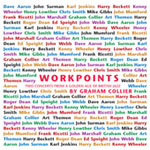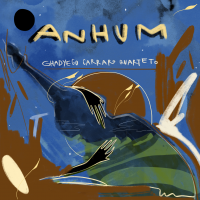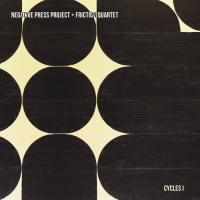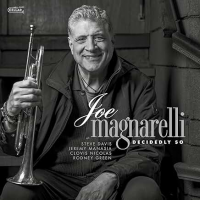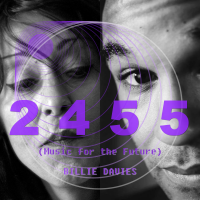Home » Jazz Articles » Album Review » Graham Collier: Workpoints
Graham Collier: Workpoints
Of these, "Workpoints" is significant because it was the first jazz work to receive a grant from the Arts Council of Great Britain, and to be sure it was money well spent. Despite the weighty sound that the twelve-piece band frequently achieves, the deftness of touch here belies the size of the force deployed. The composed elements of all four parts of the piece provide stimulus for the soloists, yet at the same time they do not restrict the ensemble's freedom of movement. Furthermore, the reflective moments in themselves prove that these were players who collectively, and again with the benefit of hindsight, blazed something of a trail for British jazz in the post bop idiom.
Whilst the notion of having each of the band's horn sections solo exclusively on a particular part is hardly radical, it is a logical enough way of getting acquainted with their styles, and the fact that the soloists are helpfully listed eliminates the guesswork that would otherwise be involved. As such, Dave Aaron's alto sax owes slight allegiance to Lee Konitz in terms of his dryness of tone, whilst Harry Beckett is himself, a fact which is always worthy of the listener's attention.
The second disc is a comparatively more freewheeling affair, and the overall feel of the music leans a lot more towards fusion. This is thanks in no small part to guitarist Ed Speight and Roger Dean's use of electric piano. Happily, however, the excesses of which that form was often guilty are absent here, despite the fact that "Little Ben," for example, runs for eighteen and a half minutes. Speight's tone, comparatively hard as it is, lends a great deal of individuality to the music, alongside Beckett and Art Themen, whose tenor sax was as quirkily individualistic then as it is now.
Given the overall nature of the date, there are perhaps inevitably some longeurs, but again the band's knowledge of and appreciation for restraint keeps the music cooking. Thirty odd years on it's good to have this music out there, and both sets serve as further evidence of a scene, and indeed a period, in which the music was being taken in directions from which a lot of people have shied away in the meantime. Is it any wonder people get nostalgic?
Track Listing
Disc One: Deep Dark Blue Centre; The Barley Mow; Workpoints Part One; Workpoints Part Two; Workpoints Part Three; Workpoints Part Four. Disc Two: Little Ben; Under the Pier; Darius Part One; Darius Part Three; Darius Part Four; Darius Part One Reprise; Clear Moon; Mackarel Sky.
Personnel
Graham Collier
composer / conductorDisc One, Workpoints: Kenny Wheeler (trumpet, flugelhorn); Harry Beckett (trumpet, flugelhorn); Henry Lowther (trumpet, flugelhorn); Dave Aaron (alto, tenor and soprano saxophones, flute); John Surman (baritone and soprano saxophones, bass clarinet, piano); Karl Jenkins (baritone and soprano saxophones, oboe, piano); Chris Smith (trombone); Mike Gibbs (trombone); John Mumford (trombone, cowbell); Frank Ricotti (vibraphone, bongos); Graham Collier (bass, leader); John Marshall (drums). Disc Two, Live in Middleheim: Harry Beckett (trumpet, flugelhorn); Art Themen (tenor and soprano saxophone); Ed Speight (guitar); Roger Dean (piano, electric piano); Graham Collier (bass, leader); John Webb (drums).
Album information
Title: Workpoints | Year Released: 2005 | Record Label: Cuneiform Records
Tags
PREVIOUS / NEXT
Support All About Jazz
 All About Jazz has been a pillar of jazz since 1995, championing it as an art form and, more importantly, supporting the musicians who make it. Our enduring commitment has made "AAJ" one of the most culturally important websites of its kind, read by hundreds of thousands of fans, musicians and industry figures every month.
All About Jazz has been a pillar of jazz since 1995, championing it as an art form and, more importantly, supporting the musicians who make it. Our enduring commitment has made "AAJ" one of the most culturally important websites of its kind, read by hundreds of thousands of fans, musicians and industry figures every month.


